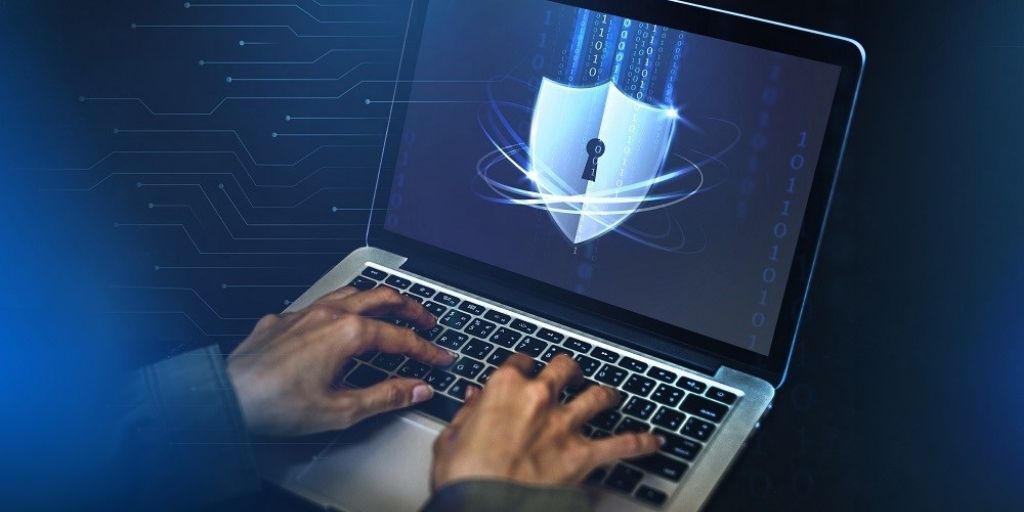 Over the past two years, we have seen the importance of a strong healthcare system. And while our doctors and nurses on the frontlines certainly must be protected, there are so many other aspects that we need to consider to ensure that these lifesaving systems continue to run optimally.
Over the past two years, we have seen the importance of a strong healthcare system. And while our doctors and nurses on the frontlines certainly must be protected, there are so many other aspects that we need to consider to ensure that these lifesaving systems continue to run optimally.
Healthcare institutions have faced an overwhelmingly challenging period of time as a result of the pandemic. Overcrowded with patients while understaffed and under-resourced, the healthcare sector has turned to technologies like cloud computing to help ease the burden on healthcare systems, patients, as well as doctors and nurses. Technology like the cloud is enabling a more efficient, patient-centric, and less costly healthcare ecosystem through the introduction of new capabilities like value-based care, point-of-care testing and even patient wearables.
However, the significant acceleration of digital transformation in the healthcare sector has also introduced new security risks and vulnerabilities that cyber criminals are looking to exploit.
Healthcare cyberattacks are on the rise
If data is the new oil, then to a cybercriminal, the healthcare sector is the largest oil reserve in the world. Due to the valuable and sensitive data collected, stored and processed by healthcare systems, it continues to be the single most highly targeted industry and the most exposed to cybercriminals’ nefarious intentions. In 2019, the global healthcare industry accounted for more than four in ten cybersecurity breaches, costing the industry an estimated $4 billion.
Because of its valuable data, the most popular form of attack employed by cybercriminals in this sector is ransomware like that which was used in the WannaCry attack which brought the UK’s National Health Service to a crashing halt in 2017. This is a form of malware that encrypts files so that only those who have employed the malware have access to the information. Malicious criminals will then either threaten to publish that personal data unless a ransom is paid to them or they will hold the decryption key ransom.
Alarmingly, the CyberPeace Institute has recently noted that ransomware attacks on the healthcare sector are rapidly increasing. Analysing more than 310 instances of cyberattacks against the healthcare sector across 35 countries, CyberPeace found that 25 countries had reported a total of 163 ransomware incidents — an average of 2.2 incidents per week — between 6 June 2020 and 15 November 2021. More than 13 million records were breached during this time, resulting in 796.5 total days of disruption which largely impacted patient care services.
Cybersecurity readiness and the implications to care
The number of successful ransomware attacks on healthcare systems and institutions around the world paint a clear picture of the sector’s struggle to keep up with constantly evolving and increasingly sophisticated cyberattacks.
The theft or manipulation of patient and staff financial or medical information can have far reaching repercussions. A breach can create chaos and fear, hamper the ability to care for patients and respond to emergencies, and can result in fatalities if medical devices such as defibrillators and ventilators are affected.
Healthcare institutions that suffer a breach can lose the trust of patients, leading to patients not seeking the care they need or providing inaccurate information which can impact medical diagnoses and treatment decisions. According to the OCR, 33% of patients have withheld information from medical practitioners for fear of exposing it to a breach. If the cybersecurity risks within the healthcare sector are not addressed quickly and effectively, this could lead to disastrous consequences.
Enhancing safety and security in the digital age
Adopting and deploying new technologies should shape a new future for healthcare and not open it up to new security risks. One of the most effective ways to ensure the protection of healthcare systems from cyberattacks is by leveraging secure cloud infrastructure which will allow organisations to easily implement new security protocols.
For example, when a biotech firm required the ability to send Covid-19 test results to their local health department in a way that was secure and transparent for users, they turned to the Zix Secure Cloud to bolster their existing encryption while a national health insurance network leveraged the cloud solution to quickly and thoroughly make changes to their data loss prevention filters while executing its Covid-19 response plan.
It is important to carefully select a trusted cloud service provider with a proven record of delivering security in a way that is both transparent and compliant to data privacy regulations. Custom-designed to help healthcare organisations in redefining the sector for the future, Zix provides protection to critical healthcare data, apps and infrastructure from potential threats through secure and continuous communications and connectivity.
Malicious cybercriminals are getting smarter and more unscrupulous by the day as they work to take advantage of the precarious situation the healthcare industry is in. But, cyberattacks impact more than just numbers and letters in a database on a machine- they have a real impact on people’s lives. Ensuring that organisations within the sector are able to maintain the confidentiality and integrity of the very personal information they hold is key to protecting the lives and livelihoods of the people who depend on the industry, and those who uphold it.












